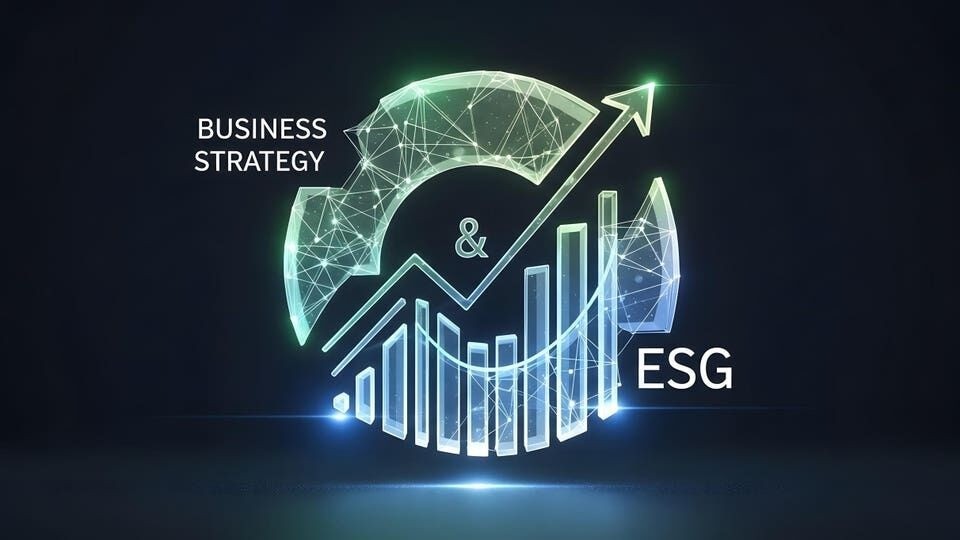5 ESG Trends That Will Shape Business in 2026
4 November 2025
Political and regulatory changes have contributed to a turbulent time for environmental and social governance (ESG) issues in 2025.
On the one hand, a dramatic change in governmental stance in the U.S. saw the brakes being hit on countless climate and social inclusiveness initiatives, and the term ESG itself becoming a political hot potato.
On the other hand, many advanced economies saw continued progress on regulations aiming at ensuring businesses are doing their bit to build a greener and more equitable future.
So, will 2026 see further division or the beginning of efforts to bridge this fracture? Or will climate catastrophe and the impact of ignoring social inclusiveness demonstrate that ESG isn’t a political choice, but a real-world business imperative?
Let’s take a look at my list of top ESG trends for 2026 and try to work it out:

1. ESG And Turbulent Political Tides
Currently, companies operating in the world’s largest economy are faced with navigating a confusing landscape of public attitudes, regulation and shifting political sentiment. Anti-ESG political rhetoric is growing, while at the same time, key states like California are continuing to roll out new regulations. In Europe, the growing popularity of right-wing populist parties is also creating a narrative of distrust and disillusionment with green energy transition and social justice-driven agendas. Is this the end for ESG? I certainly don’t think that’s the case. Recent years have seen many businesses demonstrate the clear benefits of adopting a progressive stance on environmental and social issues. I believe that in 2026, those who focus on delivering measurable progress towards ESG goals, regardless of political headwinds, will continue to deliver growth.
2. AI Ethics Joins The ESG Scorecard
With AI embedded in business and day-to-day life, customers, investors, and regulators are increasingly viewing responsible AI use as an essential element of good governance. Particularly in tightly regulated sectors like finance and healthcare, we can expect organizations to face more obligations to report on transparency and the guardrails they’re putting in place to stop AI from causing social or environmental harm. This will require those with oversight of ESG reporting to develop a more in-depth understanding of the potential for algorithmic bias, as stakeholders expect a greater level of disclosure in 2026.
3. Real Action, Not Empty Promises
Making false, exaggerated or misleading claims around sustainability has been widely recognized as a growing problem for some time. In 2026, we will see a kickback against this deceptive “greenwashing” as consumer awareness increases and legislators catch up. Rules like the EU Green Claims Directive will force businesses to back up their credentials, while conscientious customers and investors will increasingly be turned off by companies with green messaging that doesn’t match up with their actual performance. Next year and beyond, businesses will need to back up their claims with data if they don’t want to risk penalties, lawsuits and, most damagingly of all, catastrophic loss of customer trust.
4. AI-Augmented ESG Monitoring And Reporting
With ESG data becoming increasingly complex and regulators, customers and investors expecting greater granularity, AI-augmented analytics and reporting tools are quickly proving their worth. Major players, including IBM and Salesforce, have launched products targeted at making it simpler for businesses to measure their carbon footprint and offer stakeholders greater transparency, enabling real-time insights and auditing. This will make it simpler for companies to back up their credentials and protect against claims of greenwashing, as well as for customers to see how businesses align with their own values.
5. Circular Economies Go Mainstream
Business are repositioning their product lifecycles away from wasteful dispose-and-replace models, towards a “repair, reuse, recycle” ethos. This comes as customers are increasingly demanding goods that not only last longer, but are built from the ground up to encourage sustainable behavior. In 2026, this circularity will become integral to ESG reporting metrics, with businesses expected to demonstrate improved waste reduction and end-of-life processes for a growing range of products. This isn't just good for the planet; it's good business practice, unlocking the potential to lower material costs as well as create new revenue streams, including resale and repair services.
In 2026, ESG isn't dead; it's evolving. It’s becoming less about empty words and grand-sounding promises, and more about harnessing technology to drive real progress. Despite political pushback, it will continue to become smarter, more data-driven and more regulated. This means that companies wanting to position themselves as leaders while creating real growth must continue to push beyond box-ticking by embedding AI into ESG strategies while continuing to develop ethical and socially-aware practices.
Related Articles
Dreamforce 2025: Why I’m Excited About Salesforce’s Agentic Enterprise Revolution
By now, “smart” versions exist of just about every home appliance, gadget and gizmos we can think of. However, manufacturers continue[...]
Robots And AI Are Rewriting The Future Of Surgery
By now, “smart” versions exist of just about every home appliance, gadget and gizmos we can think of. However, manufacturers continue[...]
The 8 Biggest AI Trends For 2026 That Everyone Must Be Ready For Now
By now, “smart” versions exist of just about every home appliance, gadget and gizmos we can think of. However, manufacturers continue[...]
AI, Consciousness And Longevity: A Conversation With Deepak Chopra
By now, “smart” versions exist of just about every home appliance, gadget and gizmos we can think of. However, manufacturers continue[...]
AI Chatbots Are Quietly Creating A Privacy Nightmare
By now, “smart” versions exist of just about every home appliance, gadget and gizmos we can think of. However, manufacturers continue[...]
The Biggest Barriers Blocking Agentic AI Adoption
By now, “smart” versions exist of just about every home appliance, gadget and gizmos we can think of. However, manufacturers continue[...]
Sign up to Stay in Touch!
Bernard Marr is a world-renowned futurist, influencer and thought leader in the fields of business and technology, with a passion for using technology for the good of humanity.
He is a best-selling author of over 20 books, writes a regular column for Forbes and advises and coaches many of the world’s best-known organisations.
He has a combined following of 4 million people across his social media channels and newsletters and was ranked by LinkedIn as one of the top 5 business influencers in the world.
Bernard’s latest book is ‘Generative AI in Practice’.










Social Media